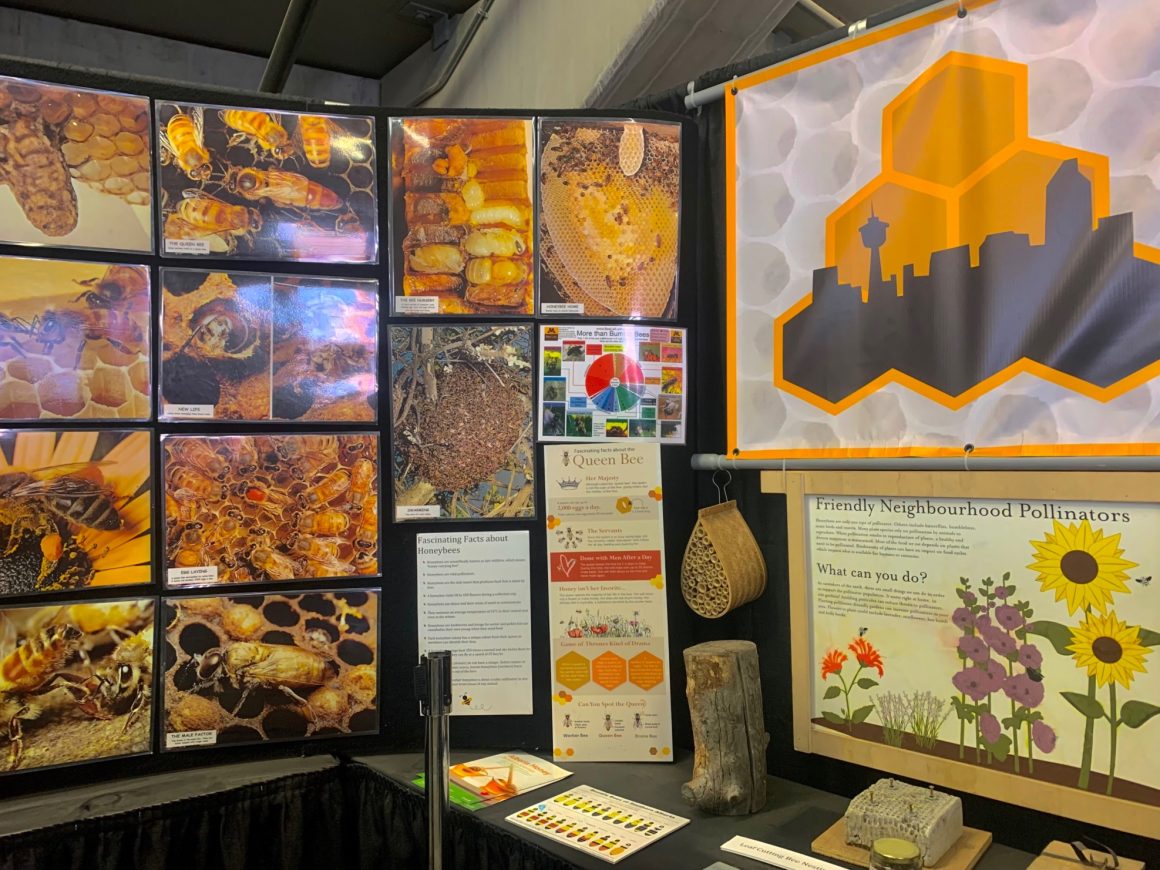
Local non-profit educates Calgarians on honeybees and the importance of other pollinators
By Nazeefa Ahmed, July 18 2024—
For more than 12 years, the Calgary and District Beekeepers Association has educated Stampeders on the importance of bees in our ecosystems. Their booth – located in the Agriculture building at Stampede Park – had a team of passionate volunteers guiding visitors through the different types of pollinators, the importance of sustainability, and the different habitats Calgarians can make in their backyards to support bee populations.
Jim Rogers – a member of the Calgary District Beekeepers Association – discussed the importance of all bees in increasing our food supply.
“If you just have an apple tree and a raspberry bush, they will produce a bucket of apples and a bucket of raspberries, but if you have bees there to pollinate, then you will get two to three buckets of apples and raspberries. It is as simple as that.”
The association brings an observational beehive to educate people about honeybees. However, Rogers highlighted that honeybee populations are increasing, and that the public is forgetting about other equally important pollinators.
“Honeybees are fascinating creatures but the one concern that some people have is that we are becoming too dependent on the honeybees,” said Rogers. “Honeybee numbers are going up because the scientists are figuring out how to do that.”
According to the National Wildlife Foundation, honeybee populations are not even close to extinction; rather, there are more honey bees in North America today than any other time in history.
“Honeybees are okay — what people forget about is all the other types of pollinators out there such as bumblebees, mason bees [and] solitary bees,” said Rogers. “Honeybees are a small percentage of pollinators out there.”
Honeybees are not native to North America, as they were imported by Europeans in the 1600s. They are classed in Canada as domesticated livestock and are often imported to pollinate crops. However, their presence in North America can be detrimental to other bee species. The Alberta Bee Council states that honeybee diseases such as colony collapse disorder can be transferred to native bees. Because of the complications, Rogers cautions against starting beehives without the proper background and commitment.
“Many people get into beekeeping because they think it is cool, but they don’t take the time to educate themselves,” said Rogers.
Conservation work is often hijacked by companies to subvert consumer expectations to sell a product — in other words, greenwashing. As consumers become more environmentally conscious, businesses try to align themselves with environmental movements without truly understanding the science. The federal government is currently investigating multiple companies for deceiving Canadians with their greenwashing tactics.
“True conservation work, in anything, is finding a balance in sustainability,” said Rogers. “Be careful of the hype we hear and be aware of how much is true and how much isn’t.”
Rogers encouraged Calgarians to visit their resources page to learn more about what people can do to support native bee populations.
“People can make habitats and small nests for the other types of pollinators. You don’t have to get into honeybees. They are great but they take a big commitment and you don’t want to get into it just because it is cool.”
More information about the Calgary and District Beekeepers Association can be found on their website.
